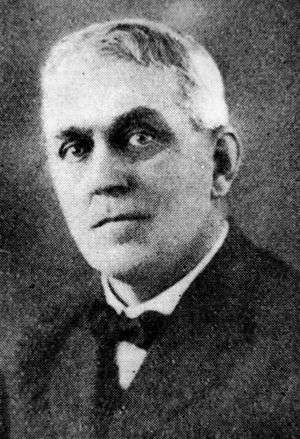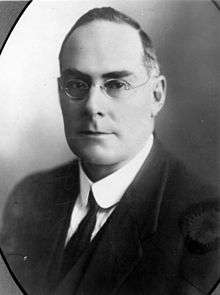Queensland state election, 1929
| | ||||||||||||||||||||||||||||||||||||||||||||
| ||||||||||||||||||||||||||||||||||||||||||||
| ||||||||||||||||||||||||||||||||||||||||||||
| ||||||||||||||||||||||||||||||||||||||||||||
Elections were held in the Australian state of Queensland on 11 May 1929 to elect the 72 members of the state's Legislative Assembly. In this election, Irene Longman became the first woman to both stand and be elected into the Queensland Parliament.
The Labor government was seeking its sixth continuous term in office since the 1915 election; it would be Premier William McCormack's second election. His main opponent was the Country and Progressive National Party (CPNP), led by Arthur Edward Moore. The term had not gone well for McCormack's government, including a railway lock-out in 1927 which pitted the Labor Party against the union movement, restrictive financial policies and attempts to sell off state-owned enterprises, as well as suggestions of corruption which later came to be known as the Mungana affair.
The election resulted in the defeat of the McCormack government, and the first non-Labor ministry since 1915.
Key dates
| Date | Event |
|---|---|
| 11 April 1929 | The Parliament was dissolved.[1] |
| 12 April 1929 | Writs were issued by the Governor to proceed with an election.[2] |
| 19 April 1929 | Close of nominations. |
| 11 May 1929 | Polling day, between the hours of 8am and 6pm. |
| 21 May 1929 | The McCormack Ministry resigned and the Moore Ministry was sworn in.[3] |
| 15 June 1929 | The writ was returned and the results formally declared. |
| 29 June 1929 | The writ was returned for the seat of Gregory. |
| 20 August 1929 | Parliament resumed for business.[4] |
Results
The election saw the defeat of the Labor government by the CPNP.
|
Queensland state election, 11 May 1929[5] | ||||||
|---|---|---|---|---|---|---|
| Enrolled voters | 491,589[1] | |||||
| Votes cast | 438,248 | Turnout | 89.15% | +0.42 | ||
| Informal votes | 6,836 | Informal | 1.56% | +0.33 | ||
| Summary of votes by party | ||||||
| Party | Primary votes | % | Swing | Seats | Change | |
| CPNP | 233,977 | 54.23% | +5.03 | 43 | +15 | |
| Labor | 173,242 | 40.16% | –7.80 | 27 | –16 | |
| Communist | 2,890 | 0.67% | +0.67 | 0 | ± 0 | |
| Independent | 21,303 | 4.94% | +3.33 | 2 | + 1 | |
| Total | 431,412 | 72 | ||||
- 1 517,466 electors were enrolled to vote at the election, but 4 seats (5.6% of the total) were uncontested—2 Labor seats (3 less than 1926) representing 9,041 enrolled voters and two CPNP seats (one more than 1926) representing 16,536 enrolled voters.
Aftermath
The CPNP, found itself in power as the Great Depression took hold. It lost power after just one term.
See also
- Members of the Queensland Legislative Assembly, 1926–1929
- Members of the Queensland Legislative Assembly, 1929–1932
- McCormack Ministry
- Moore Ministry (Queensland)
References
- ↑ Queensland Government Gazette. 11 April 1929. p. 132:1001. Missing or empty
|title=(help) - ↑ Queensland Government Gazette. 12 April 1929. p. 132:1003. Missing or empty
|title=(help) - ↑ Queensland Government Gazette. 21 May 1929. p. 132:1461–1463. Missing or empty
|title=(help) - ↑ Queensland Government Gazette. 25 July 1929. p. 133:201. Missing or empty
|title=(help) - ↑ Australian Government and Politics Database. "Parliament of Queensland, Assembly election, 11 May 1929". Retrieved 13 January 2009.

